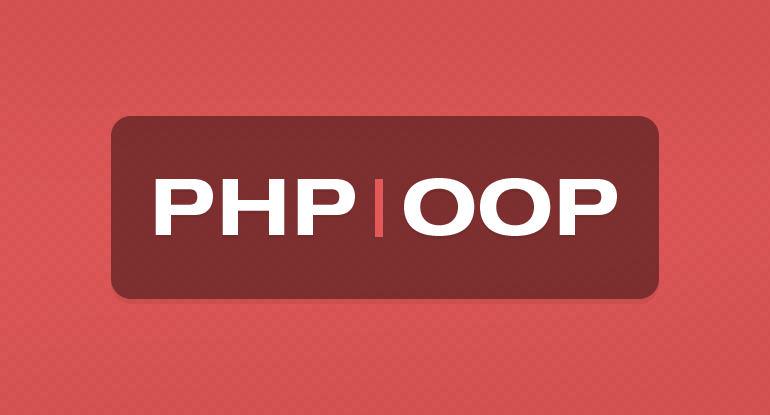
Object-Oriented Programming (OOP) in PHP is a powerful way to structure and organize your code, making it more modular, reusable, and easier to maintain. Whether you’re building a small website or a large-scale application, understanding OOP principles in PHP will significantly enhance your development skills.
Object-Oriented Programming (OOP) is a programming paradigm that uses “objects” to design applications and software. Objects are instances of classes, which can contain data in the form of properties and code in the form of methods. OOP allows you to model real-world entities and relationships, making your code more intuitive and easier to manage.
OOP in PHP is built around several key concepts:
The foundation of OOP in PHP starts with creating classes and objects. A class is a blueprint for creating objects, and an object is an instance of a class.
A class in PHP is defined using the class keyword, followed by the class name and a set of curly braces. Here’s an example of a simple class definition:
<?php
class Car {
public $make;
public $model;
public function __construct($make, $model) {
$this->make = $make;
$this->model = $model;
}
public function getCarInfo() {
return $this->make . " " . $this->model;
}
}
?>
Once you have a class, you can create objects from it using the new keyword:
<?php
$car = new Car("Toyota", "Corolla");
echo $car->getCarInfo(); // Outputs: Toyota Corolla
?>
The __construct() method is a special method in PHP that is automatically called when an object is created. It’s typically used to initialize properties. Similarly, the __destruct() method is called when an object is destroyed.
<?php
class User {
public $name;
public function __construct($name) {
$this->name = $name;
echo "User " . $this->name . " created.";
}
public function __destruct() {
echo "User " . $this->name . " destroyed.";
}
}
$user = new User("Alice");
?>
Inheritance is a mechanism where one class can inherit the properties and methods of another class. The class that inherits is called the child class, and the class being inherited from is called the parent class.
Let’s define a parent class called Vehicle:
<?php
class Vehicle {
public $brand;
public function setBrand($brand) {
$this->brand = $brand;
}
public function getBrand() {
return $this->brand;
}
}
?>
Now, let’s create a child class Car that inherits from Vehicle:
<?php
class Car extends Vehicle {
public $model;
public function setModel($model) {
$this->model = $model;
}
public function getModel() {
return $this->model;
}
}
$car = new Car();
$car->setBrand("Toyota");
$car->setModel("Corolla");
echo $car->getBrand() . " " . $car->getModel(); // Outputs: Toyota Corolla
?>
In a child class, you can override methods from the parent class by redefining them. However, you can still call the parent class method using the parent keyword:
<?php
class Car extends Vehicle {
public function getBrand() {
return "Car brand: " . parent::getBrand();
}
}
?>
Encapsulation is the concept of restricting access to certain components of an object and only exposing what is necessary. In PHP, this is achieved through access modifiers:
Here’s an example of how to use access modifiers in a PHP class:
<?php
class BankAccount {
private $balance = 0;
public function deposit($amount) {
$this->balance += $amount;
}
public function getBalance() {
return $this->balance;
}
}
$account = new BankAccount();
$account->deposit(100);
echo $account->getBalance(); // Outputs: 100
?>
Polymorphism allows you to use a single interface to represent different data types or classes. In PHP, polymorphism is typically achieved through method overriding and interfaces.
An interface defines a set of methods that a class must implement. Here’s an example:
<?php
interface Logger {
public function log($message);
}
class FileLogger implements Logger {
public function log($message) {
echo "Logging to a file: " . $message;
}
}
class DatabaseLogger implements Logger {
public function log($message) {
echo "Logging to a database: " . $message;
}
}
$logger = new FileLogger();
$logger->log("An error occurred.");
?>
Abstraction allows you to define methods that must be implemented by derived classes, without providing the actual implementation in the base class. This is done using abstract classes and methods.
An abstract class cannot be instantiated and must be extended by other classes. Abstract methods defined in an abstract class must be implemented by child classes:
<?php
abstract class Shape {
abstract public function area();
}
class Circle extends Shape {
private $radius;
public function __construct($radius) {
$this->radius = $radius;
}
public function area() {
return pi() * pow($this->radius, 2);
}
}
$circle = new Circle(5);
echo $circle->area(); // Outputs the area of the circle
?>
Object-Oriented Programming (OOP) in PHP provides a robust framework for building scalable, maintainable, and efficient applications. By mastering OOP principles such as classes, inheritance, encapsulation, polymorphism, and abstraction, you can greatly enhance your PHP development skills and create more sophisticated web applications.
Start applying these OOP concepts in your PHP projects today, and take your coding to the next level.